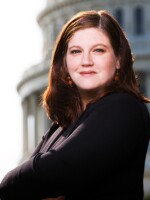ANDREA SEABROOK, host:
The humanitarian group Doctors Without Borders reported this week that the Sudanese army - aided by militias - had launched a major new offensive in northwest Darfur. The desperate situation there became even more complicated this month when fighting erupted in neighboring Chad.
I checked in yesterday with Jan Eliasson, the special envoy of the United Nations Secretary General for Darfur. He gave me an update on the fighting and the still very slow deployment of a new joint U.N.-African Union peacekeeping force in Darfur.
Mr. JAN ELIASSON (Special Envoy of the United Nations Secretary General, Darfur): It's one of the biggest peacekeeping operations ever undertaken, and it requires cooperation from the side of the government of Sudan. Unfortunately, the deployment has been slow, but I - all my sources say that not all countries have contributed the way they should. We still lack helicopters for the operation.
On the political front, we hope very much to get the talks started. We tried to start them in November, but unfortunately there were negative developments, both divisions inside the different movements and then the complications arising around Chad.
SEABROOK: This is all mixed up with Sudan, isn't it?
Mr. ELIASSON: We always say if you want to understand international relations, learn history and look at the map, and if you look at the borderline between Chad and Sudan, you find that it is drawn by a ruler as a straight line. It was drawn in 1885 in Berlin.
The colonial borders drawn at that time certainly do not reflect ethnic and tribal realities, which means that you simply cannot draw a distinction between the people living on the Chad side and the Darfurian side.
SEABROOK: Can you explain to people here who have a sense of the fighting in Darfur why they should then worry about Chad, why this isn't a different situation?
Mr. ELIASSON: There are tensions between the two governments, which takes the expression of cross-border incursions between Chad and Sudan, unfortunately in both directions. The border is completely porous. You can cross it as easily as you can imagine, and this leads to a situation which has immediate effects in Darfur. Unless we have normal relations between Chad and Sudan, we cannot have peace in Darfur.
SEABROOK: There are reports that gunmen in Eastern Chad are preventing the U.N. from moving refugees from the Darfur region into refugee camps in Chad. What can the United Nations do for the people in these camps?
Mr. ELIASSON: Well, I'm full of admiration for the aid workers, and I must say this is a fantastic job they do, but I'm also frustrated in a way because I feel that the whole operation, which costs $800 million a year and employs these 12,000, 13,000 people in Sudan, in Darfur, it's like putting a Band-Aid or plaster over an infected wound because it's just dealing with the symptoms.
I would rather spend that money for irrigation projects to get water, for health clinics, for schools, rather than just keeping people alive. In the camps, you can imagine what a 17-year-old boy is thinking when he came there as a 13-year-old boy and now has seen his father not tending to his land and his mother risking getting raped when she goes out to fetch water or firewood.
So we have to get away from the humanitarian assistance to recovery and development.
SEABROOK: Jan Eliasson is a special envoy of the United Nations Secretary General for Darfur.
Thank you very much, sir.
Mr. ELIASSON: Thank you. Transcript provided by NPR, Copyright NPR.






